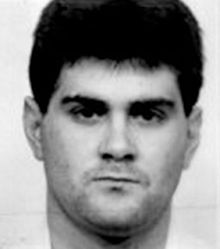- Washington D.C.(202) 644-9756
- Texas:(214) 272-2833
- Georgia:(770) 284-3147
- Florida:(407) 388-1900
- Colorado:(303) 630-9863
- Missouri:(314) 627-5099


Police investigations following the fire led investigators to believe that an accelerant had been used to start the household fire. Fire marshal Manuel Velazquez reported that about twenty different indications throughout the house pointed to the use of a liquid accelerant. (In 2004, a Ph.D. in chemistry would dispute each and every one of these indications). A jailhouse informant named Johnny Webb would later assert that Willingham confessed to him that he purposely set the fire to hide an injury of one of the daughters. Webb claimed that Willinghams wife injured one of the girls and Willingham was covering for her. Webb also told prosecutors, and the jury, that Willingham burned one of the girls before the fire was set to stage a scene where it looked like she was playing with fire. At trial the prosecutor told the jury that Willinghams tattoo (a depiction of a skull and serpent) signified that he was a sociopath. A psychologist was brought to interpret for the jury what Willinghams Iron Maiden poster signified. He relayed that it was a sign of violence and death. Another, James Grigson, testified that Willinghams criminal history indicated the he was an extremely severe sociopath and incurable. (Grigson was later expelled from the American Psychiatric Association for unethical conduct).
While experts disputed much of the scientific (and medical) evidence in the years following the trial, not much attention was paid to witness statements. That is until an interview was released to the public by The New Yorker. The newspaper interviewed the jailhouse informant, Webb, to hear his take on his own testimony. Webb stated, its very possible I misunderstood what he said. Being locked up in that little cell makes you kind of crazy. He would go on to ask whether the statute of limitations was up for perjury. Recently a handwritten letter from Webb to prosecutor John Jackson was discovered. The letter pressed Jackson to make good on their earlier promise to reduce Webbs conviction in exchange for testifying against Willingham. This exact agreement has been denied by Jackson for almost twenty years. This letter combined with the fact that Jackson had a judge alter Webbs robbery conviction so that he could eligible for parole just days after the letter was written makes for fairly suspicious circumstances. John Jackson is currently under investigation by the Texas Bar Association for his handling of the case.
At Brownstone Law we respect the TBAs commitment to seeking justice.
Tags: appeal, appeal attorneys, appeal lawyers, appeal lawyers federal, appealattorney, appeals, appealslawyers, appellate attorney